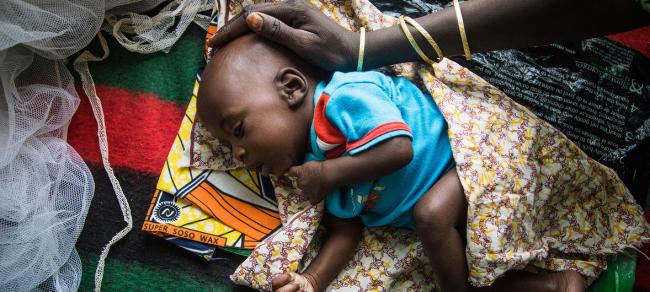
UN agencies urge global action as drought looms over Africa’s Sahel region
New York, May 4 (IBNS): United Nations agencies have urged greater international support to stave off severe food insecurity in Africa’s western Sahel; a region reeling from the effects of conflict and now threatened by drought and rising hunger.
According to estimates, about five million people in northern Senegal, southern Mauritania and parts of Mali, Niger, Burkina Faso and Chad, will require food and livelihood assistance, after having exhausted their food reserves – which may run out by the end of this month.
In normal weather conditions, supplies would last beyond June, into September.
“We are hearing of people cutting down the number of daily meals and children dropping out of school,” Abdou Dieng, the Regional Director of the UN World Food Programme (WFP) for West and Central Africa, said in a news release on Thursday.
“Those are telling signs of a looming disaster that the world cannot continue to ignore.”
It is feared the region’s children will be the worst affected, with more than 1.6 million at risk of severe acute malnutrition this year – representing a 50 per cent increase compared with the last major nutrition crisis in the Sahel, in 2012.
Marie-Pierre Poirier, the Regional Director for West and Central Africa at the UN Children’s Fund (UNICEF) said that it was “tragic that the same mothers are coming back to the clinics year after year with their children for treatment.”
“We can break this cycle if we invest now in building resilience – making families, communities and national authorities better equipped to prevent and deal with similar shocks in the future,” said Poirier.This year, the numbers have been the worst, she added.
Strengthening resilience is also the top priority for the UN Food and Agriculture Organization (FAO).
“What will help stabilize the Sahel is support for pastoralists and agro-pastoralists, during this lean season and in the future, to cope with shocks that include climate change and conflicts,” said Coumba Sow, the Sub-Regional Coordinator for Resilience for FAO across the region.
To mitigate the impact of the immediate crisis, the three UN agencies have developed a joint response to cover food needs, protect livelihoods and address malnutrition.
They have also prepared longer-term interventions, including improving access to local food resources as well as strengthening health and social services to allow communities and countries at large, to prevent and deal with similar shocks in the future.
Implementing these programmes however, relies on sufficient funding.
Fully funded, the WFP response (requiring $284 million) will provide food and nutrition to some 3.5 million people. UNICEF’s response ($264 million) will protect almost 1 million children from severe acute malnutrition and provide them access to water and sanitation facilities and education until the end of the year.
The FAO response (requiring $128 million, of which $45 million is urgently needed) will help the situation from further deteriorating for 2.5 million livestock and other farmers, and their families.
UNICEF/Tremeau
Support Our Journalism
We cannot do without you.. your contribution supports unbiased journalism
IBNS is not driven by any ism- not wokeism, not racism, not skewed secularism, not hyper right-wing or left liberal ideals, nor by any hardline religious beliefs or hyper nationalism. We want to serve you good old objective news, as they are. We do not judge or preach. We let people decide for themselves. We only try to present factual and well-sourced news.







